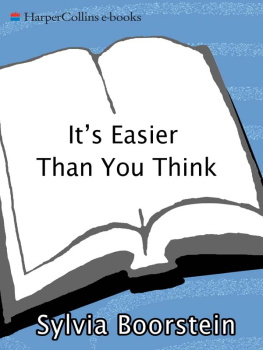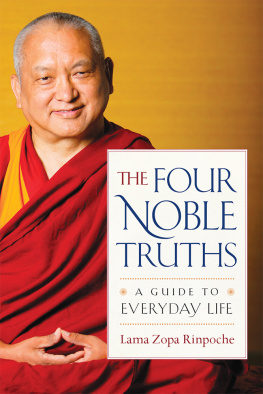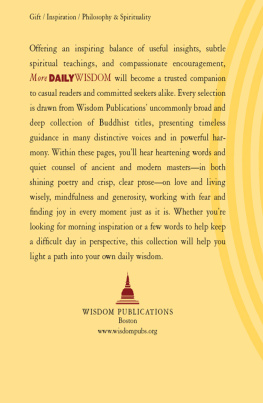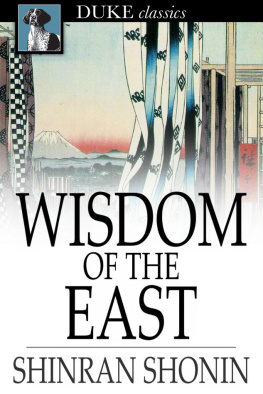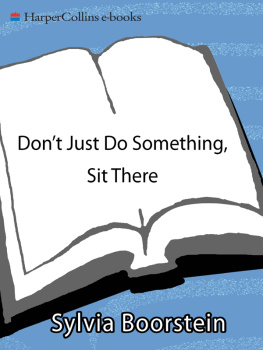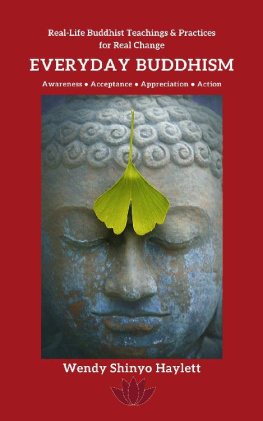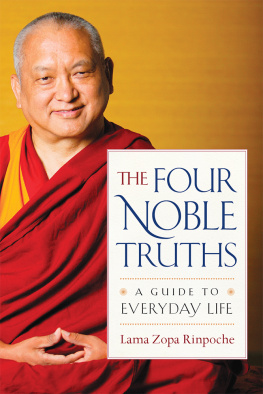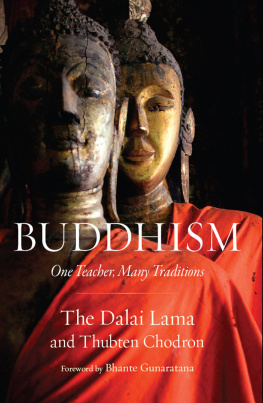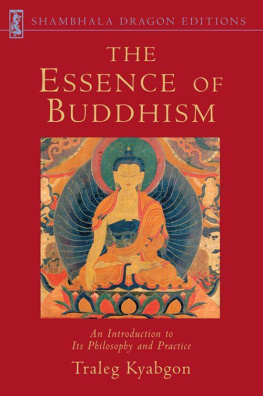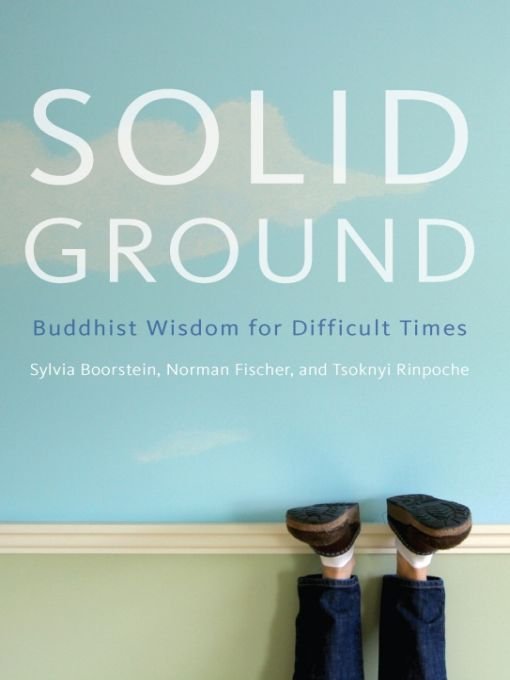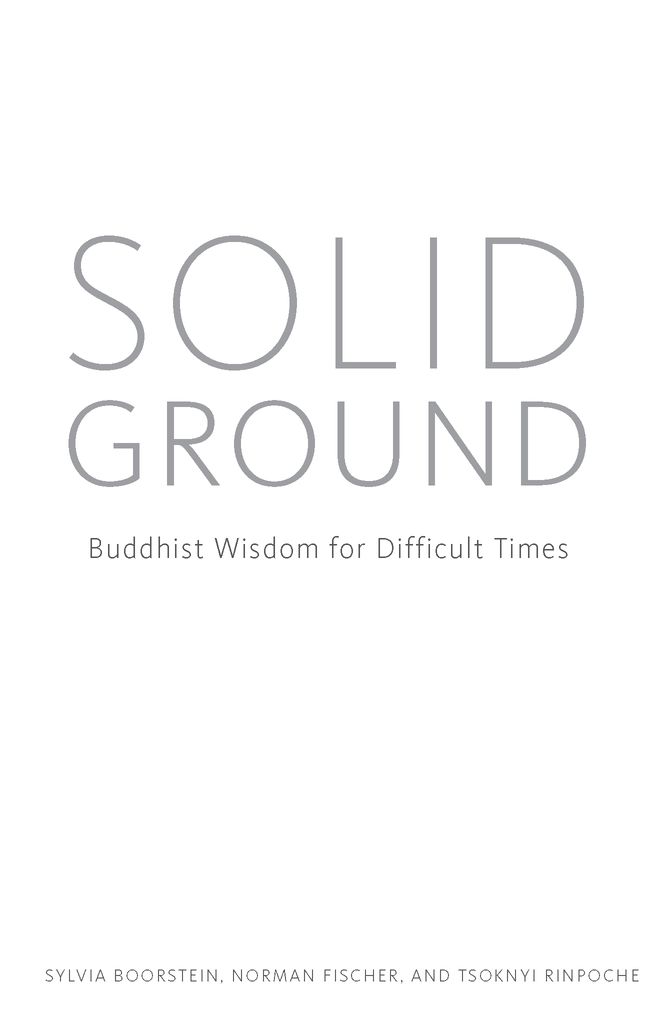Table of Contents
PARALLAX PRESS
BERKELEY, CALIFORNIA
introduction
MELVIN MCLEOD
Melvin McLeod is the editor-in-chief of Shambhala Sun and Buddhadharma: The Practitioners Quarterly. He is also the author of, most recently, Mindful Politics: A Buddhist Guide to Making the World a Better Place.
All conditioned phenomena are impermanent. According to Buddhism, that simple, seemingly bland statement defines the human dilemma. When we deny and struggle against its truth, we suffer. When we accept and open ourselves fully to its reality, we discover peace and untold resources of wisdom and compassion within us. This is the essence of Buddhist wisdom for difficult times.
Every life is marked by change and loss. Everything changes, ages, breaks, falls to pieces, and decays. To put it bluntly, everything dies. Every being, inanimate object, idea, philosophy, religion, planet, and universe ever known dies. This includes every person we love, every object we treasure, every credential we earn and success we achieve, every idea we have, every perception or emotion we experience, and every moment we live. Some things last longer than others and give the appearance of permanence, but ultimately theres nothing we can hold on to; its all changing constantly.
Who can blame us for wanting it to be different? We want to be able to hold on to what we want to hold on to and avoid what we want to avoid. We want to feel secure about our own reality and to live in a universe that confirms it. But the struggle to build a solid life for ourselves in a world that we cant rely on is ultimately futile. The world doesnt cooperate. The economy rises and falls. Political upheavals happen. People like us and then they dont. Or they dont like us and then they do. We experience success and then we fail. We fall in and out of love. Our children leave to start their own families. Our old friends die. We go from tears of joy to tears of sorrow and back again. Underneath everything is a subtle feeling of anxiety and insecurity that colors every moment of our lives, even the ostensibly happy ones.
In Buddhism the suffering caused by the disconnect between what we want and what reality gives us is called the First Noble Truth. Some people think of Buddhism as negative or pessimistic because of its focus on suffering. But while suffering is Buddhisms starting pointbecause it is lifesthe other three noble truths deliver hopeful news. We can understand why we suffer (the Second Noble Truth), peace and joy are possible in this very life (the Third Noble Truth), and there is a clear path we can follow to get there (the Fourth Noble Truth).
All Buddhist wisdom is wisdom for difficult times. In this small and beautiful book, three leading teachers show us how they have coped with difficulty in their own lives and how Buddhism helped them do it. They offer us insight based on their years of study, meditation, and wise living. And what they tell us goes against every grain of our being.
Normally, we feel our happiness is dependent on the outside world and how it treats us, when really we have little influence over what will happen to us in life (and none at all over the basic nature of reality). Theres a Seinfeld episode in which George Costanza realizes that if everything he usually does in life is wrong, then the opposite must be right. Buddhisms like that. What these three wise teachers tell us is pretty much the opposite of the way we normally live.
Here are some of the radical truths you will read in this book:
difficult times are inevitable, but whether we suffer or not depends on how we react to that difficulty
by facing difficulty with an open heart, we discover insight, love, and courage
the basic practice is to stop everything were doing and just look at whats happening
the best way to be happy ourselves is to put others happiness first
the only really solid ground is open ground
In the face of constant change, we seek solid ground. Thats fundamental. But there is no solid ground in conditioned phenomena: we wont find security in a slippery and unpredictable world or be able to build a sense of personal identity based on our ever-changing thoughts and emotions. Nonetheless, we cling to that which we think will benefit us, repel that which we label as negative, and are indifferent to whatever does not affect us personally. These basic drivespassion, aggression, and ignoranceare what Buddhism calls the Three Poisons. Theyre our strategy for trying to control our world, and they only make us hurt ourselves and others.
As an alternative, Buddhism offers the radical act of stopping. What if we just stop and look and fully experience life as it is? In the greatest reversal of all, in doing nothing we discover everything.
Stopping doesnt mean we become indifferent, impractical, or paralyzed. When our child is very sick, we still rush her to the hospital. But we have choices about how we respond inside. We can hope; we can fear; we can alternate between the two. We can blame; we can deny; we can pray. Or we can just be. We can rest openly in our pain and uncertainty, neither minimizing it nor identifying with it.
Only this ground of open, accepting mind is truly solid. A mind dominated by hopes and fears, likes and dislikes, cant ever be happy or secure in this shifting world. It is our very search for security that makes us insecure. It is our very search for happiness that makes us unhappy. This is another of Buddhisms great reversals of conventional thinking. When we rest in the open ground of our being, we discover that we are not ultimately dependent on the ups and downs of this world. We discover resources of wisdom, love, and strength we didnt know were in us. We discover that this very vale of tears, in which life and death inter-are, is spacious, sacred, and joyous.
By simply opening ourselves to the experience of difficulty, with all its pain and uncertainty, we can experience ourselves fully, perhaps for the first time. Being who we really are is an all or nothing proposition. We cant just hold on to the parts of our experience we enjoy or approve of and hide the rest away. Only when were willing to experience it allour sadness, fear, pain, and self-doubt, as well as our happiness, confidence, and virtueswill we discover the full depth and vastness of our being. Only then, through the path of opening ourselves in difficult moments, will we discover who we really are. It is the greatest discovery of all, and it is the fruit of practicing in difficult times.
This isnt easy, particularly in times of extreme difficulty. It takes courage to face life in all its intensity. Norman Fischer is one of the most insightful writers in American Buddhism. He has practiced for decades under the tutelage of great Zen masters. Yet even after years of meditation and study, the unexpected death of his best friend, whom he describes as closer than a brother, shook him to his core.
You will appreciate the love and honesty with which Norman talks about this difficult event in his life and of how, with all its pain, it changed him for the better. Neither Buddhism nor meditation insulates us from pain. We cant even control the feelings and thoughts that arise within us when life gets painful. But when were aware of our thoughts, perceptions, and feelings as they arise, were liberated on the spot from their control over us. We experience their true nature as manifestations of basic awakened mind, beyond suffering and non-suffering. That is the secret of Buddhist meditation.


